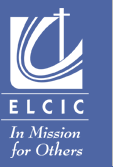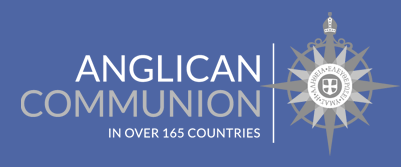Subject: Alternative Collects for the Revised Common Lectionary
Moved By: The Ven. Dr. Edward Simonton
Seconded By: The Rt. Rev. Susan Bell
Be it resolved that this General Synod:
Authorize for use Alternative Collects for the Revised Common Lectionary.
Source: Faith, Worship, and Ministry Coordinating Committee
Submitted By: Faith, Worship, and Ministry Coordinating Committee
Does this motion contain within it any financial implications? Yes No
If yes, has the General Synod Expenditures Committee considered the implications? Yes No
EXPLANATORY NOTE/BACKGROUND
The General Synod of 2007 instructed the Faith, Worship, and Ministry to create a set of principles and guidelines for the revision of our contemporary language liturgical texts. Principles for Liturgical Revision and an Agenda for Liturgical Revision were adopted by the General Synod 2010, along with a resolution calling for the establishment of a Liturgy Task Force, which was charged with the task of textual revision and new text creation. This Task Force worked under the auspices of Faith, Worship, and Ministry up to 2016, and created four new and alternative resources.
The Proper of the Church Year in The Book of Alternative Services was fashioned in light of the Common Lectionary, a three-year ecumenical cycle of scripture readings for Sundays and Holy Days that was the predecessor to the Revised Common Lectionary (RCL) currently followed by The Anglican Church of Canada. These prayers were crafted, for the most part, to complement the readings for Year A, leaving all but a few occasions without collects reflective of the readings belonging to the other two years of the cycle. Moreover, due to differences between RCL and its forerunner, sometimes the collects in the BAS no longer match the biblical texts assigned for Year A.
Earlier attempts were made by the General Synod to adopt RCL-based collects from other Provinces (notably Australia and New Zealand) were met with negative response in the trial use and evaluation phase (2001-2004), prompting FWM in the 2004-2007 triennium to initiate an original writing project. Over a dozen writers were set to the task, resulting in the completion of approximately one third of the full cycle. It was at that point that the FWM committee – having done significant background work on two areas of liturgical revision (Collects and Calendar) decided to take a step back and refocus a new start in liturgical textual work by first enunciating the Principles mentioned above.
From 2011 to 2015, the Liturgy Task Force reviewed the Collects-of-the-Day from the Propers found in the Prayer Books of eight Provinces, along with several single-author collections and the 2004 original writings, sifted through, adapted and edited, and compiled a collection from multiple sources. Most of the collects proposed are adapted from the Church of England’s Common Worship and Common Worship Additional Collects, the writings of Steven Shakespeare, the Consultation on Common Texts’ Revised Common Lectionary Collects, Evangelical Lutheran Worship, the New Zealand Prayer Book and the 2004 FWM collection.
The process of collection, decision-making, and editing was steady, time-consuming, and prayerful. Six members of the Liturgy Task Force would meet, reviewing the lections of the day and the eleven or twelve extant collects, reflecting together on the Gospel and other readings, and praying through the collects before entering into analysis.
The Council of General Synod in 2013 gave permission for the work-in-progress on this and the other projects of the Liturgy Task Force to be released as they became ready for the purpose of trial use and evaluation where permitted by the Ordinary. The collects were published – along with feedback forms – on an incremental basis over two years. They were also circulated to the Bishops directly, with regular reminders to them of our desire to engage critical and constructive feedback. They were posted through social media, again with encouragements for feedback. The evaluation forms included specific, guiding questions to help to encourage concrete feedback.
During the trial use and evaluation process, most of the feedback received was casual and positive in nature – comments received through social media made up the bulk of the responses. Two bishops refused to permit them to be used in their dioceses, but many bishops encouraged and oversaw the promotion of the use of all of the trial use materials. Several very helpful, studied responses were also received, and taken into account in the final editing. The texts presented here – Collects of the Day, as well as Seasonal Prayers over the Gifts and Prayers after Communion – are the result of an editorial process following up on the trial use feedback.
It is important to emphasize that these prayers are not intended to replace the existing canon of the Proper of the Church Year in The Book of Alternative Services. Rather, they are to be considered an addition to the library of liturgical resources approved by the General Synod for use where permitted by the Ordinary, and are, as such, one alternative amongst several (BAS and Book of Common Prayer).
PROCEDURE FOR ADOPTION (G)
In the normal course, an ordinary motion must be passed by a majority of the members of General Synod present and voting together. Six members of General Synod may, prior to the question being put, require a vote by Orders, with a majority of each Order being necessary to pass.
If a question passes on a Vote by Orders, any six members (two from each of three different dioceses) may immediately before the next item of business require a vote to be taken by dioceses. A motion passes if a majority (or a tie) of dioceses vote in favour.
Source: Sections 4 and 5 of the Declaration of Principles and sections 18, 19 and 20 of the Rules of Order and Procedure.


